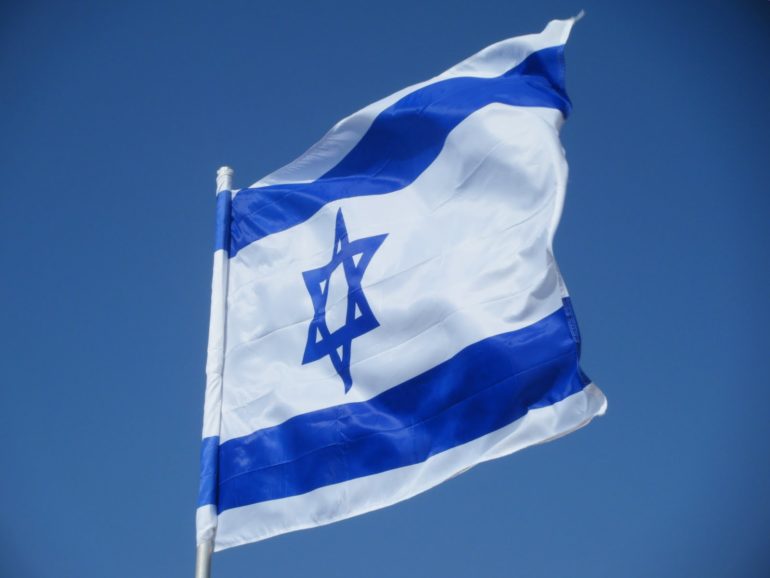
What Is Zionism?
Dear Jew in the City,
I was angered to read the updated Wikipedia definition of Zionism. They write that it “is an ethno-cultural nationalist movement that emerged in Europe in the late 19th century and aimed for the establishment of a Jewish state through the colonization of a land outside of Europe.” Surely Zionism is much older than the 19th century. Can you please explain from the Torah perspective?
Sincerely,
Jessica
P.S. Here’s the old definition and new definition. It’s not pretty…
–
Dear Jessica,
Thanks for your question. Zionism is the belief that Jews, just like other peoples, have the right to self-determination, specifically in their ancestral homeland, i.e., Israel. While the name may have been coined in the modern era – and it was not initially embraced by all segments of the Jewish population for a variety of reasons – the sentiment that it represents is ancient.
Let’s start with “Zion.” What is that? It’s simple enough. Zion – “Tziyon” in Hebrew – is the name of a particular hill, Mount Zion. The name has been used to refer to the Temple Mount, the city of Jerusalem, and Israel generally.
Israel is a central tenet in Judaism; it’s an indispensable component of our faith. The very first comment made by Rashi (the commentator par excellence) on the very first verse in Genesis asks why the Torah doesn’t just start with the first law. Why does God give a whole history, starting with the creation of the world? He answers that this is meant as an answer to the nations of the world who would claim that the Jews stole the land of Israel. Hashem created the world and He can assign different pieces of it to whomever He so desires. The Torah makes it clear that he gave Israel to the Jews.
That God gave Israel to the Jews is a fact reiterated many times throughout the Torah. God said to Avraham, “I am Hashem, Who brought you out of Ur Kasdim to give you this land to inherit” (Genesis 15:7). To Yitzchak He said, “To you and your descendants I give this land” (Genesis 26:3). To Yaakov, “The ground upon which you are lying I give to you and your descendants” (Genesis 28:13). He told Moshe, “I made a pact with (the Forefathers) to give them the land of Canaan” (Exodus 6:4). To Yehoshua he said, “Every place you will walk I have given to you, as I told Moshe” (Joshua 1:3). There are many, many more such verses. The Midrash (Vayikra Rabbah 13:2) explains that Hashem evaluated every land and found no land more appropriate for the Jewish people than Israel.
Israel isn’t just the land that God assigned to the Jews; He has a special fondness for it Himself. The Torah says that Israel is “a land that Hashem seeks out; the eyes of Hashem are always upon it” (Deut. 11:12). The Midrash (Bamidbar Rabbah 23:7) tells us that Israel is more loved by Hashem than anything else. The Talmud (Moed Katan 25a) says that God’s presence doesn’t rest outside of Israel.
We see that there’s a special three-way relationship that includes the Jews, the land of Israel and God Himself. This is evident from such verses as Deuteronomy 30:5-6, which tells us that “Hashem will bring you into the land that your fathers possessed… (then) He will turn your hearts and the hearts of your children to love Hashem your God with all your hearts and all your souls….” Similarly, in Ezekiel 36:24-36 God tells us, “I will… gather you from all lands and bring you to your own land… I will give you a new heart and I will put a new spirit within you… you will live in the land that I gave to your fathers. You will be My people and I will be your God….”
In a verse that may be familiar from the High Holiday liturgy, the Torah says (Leviticus 26:42), “I will remember my pact with Yaakov, and with Yitzchak, and with Avraham, and I will remember the land.” Rashi explains that if the merit of Yaakov is not sufficient for the Jewish people, God will recall the merit of Yitzchak. If that is not enough, He will recall Avraham. Following this logic to its natural conclusion, we see that the merit of Israel on behalf of the Jewish people can exceed even that of the Forefathers!
There’s a mitzvah to live in Israel, though there’s a difference of opinion as to whether doing so is obligatory or optional. The Torah tells us, “Inherit the land and live in it, since it is to you that I am giving the land to occupy” (Numbers 33:53). The Ramban (Nachmanides) explains that “inherit the land” is a commandment to the Jewish community as a whole to control the government of Israel. “Live in it” is a mitzvah for each individual to live in Israel, even if the land is under outside control. The Ramban calls this mitzvah “incumbent upon every individual in every generation.”
We see the significance of the mitzvah to settle Israel from the example of Omri, who was one of the most evil of the Jewish kings (I Kings 16). The Talmud (Sanhedrin 102b) asks what he did to deserve the throne. It answers that he added a city to Israel, even though he did so for his own honor and not to honor Hashem (I Kings 26). If a wicked person who builds up Israel for his own sake is rewarded, certainly an average person who intends to support Israel in order to fulfill the will of Hashem will be rewarded!
In addition to the mitzvah of living in Israel, there are many mitzvos that can be observed only there. These are in large part agricultural in nature, such as terumah and maaser (the various tithes), Shemittah and Yoveil (the Sabbatical and Jubilee years). The Talmud asks (Sotah 14a), “Why did Moshe want so desperately to enter Israel? Did he want to eat its fruits or satisfy himself from its goodness? No, he wanted to fulfill the many mitzvos unique to Israel.”
The mitzvah of birkas hamazon (“bentching,” grace after meals) is also related to Israel. The Torah tells us (Deut. 8:7-10), “Hashem is bringing you into a good land, a land with streams of water, of fountains and springs…a land of wheat, barley, grapes, figs and pomegranates; a land of oil olive and honey; a land where you will eat bread without shortage. You will lack nothing in the land…. When you have eaten and are satisfied, you will bless Hashem for the good land which He has given you.”
We see from all this that Israel was given to the Jewish people to help them keep mitzvos. As it says in Psalms (105:44-45), “Hashem gave them the lands of (the Canaanite) nations… so they would keep His laws and observe His Torah.”
The mitzvah of Torah study is said to be the equal of all the other mitzvos combined, and we see that there’s an unbreakable bond between Israel and Torah study. Among the sources that stress this idea is Bereishis Rabbah (16:4), which teaches that “there’s no Torah like the Torah of Israel.” Abaye, a Sage of the Talmud who lived in Babylonia, said that a Torah scholar in Israel is equal to two outside of Israel (Kesubos 75a). And according to the Gemara in Baba Basra (158b), the air of Israel makes one wise.
The Jews have two inheritances. One is Israel (Exodus 6:8) and the other is Torah (Deut. 33:4), and the two are interrelated. According to the Talmud (Sanhedrin 49a), “If not for David learning Torah, Yoav would not have been victorious in battle. If not for Yoav fighting battles, David would not have been able to learn Torah.”
Ironically, a certain “anti-Zionist” group of so-called “progressive” Jews has adopted as their motto the words of Deuteronomy 16:20, “Justice, justice you shall pursue.” The ironic part is that they conveniently overlook the rest of the verse, which states, “so that you may live and inherit the land that Hashem your God is giving you.” Pursuing justice clearly doesn’t mean abandoning our ancestral home!
So “Zionism” is the modern expression of an idea that goes way back. We see it during the Roman exile, during the years in the wilderness following the Exodus, and even predating our descent to Egypt. Yes, there is a very small minority of ultra-Orthodox Jews who identify as “anti-Zionist,” a phenomenon we have addressed in the past, but they oppose the ideas of a secular Jewish government and/or a Jewish state prior to the Messianic era. They don’t oppose living in Israel per se, as these communities have always maintained sizeable populations in Israel, and continue to do so today. By believing in the rights of Jews to live in Israel and to worship as they see fit, they are actually living the Zionist ideal more than they themselves believe.
Sincerely,
Rabbi Jack Abramowitz
Educational Correspondent
Follow Ask Rabbi Jack on YouTube
If you found this content meaningful and want to help further our mission through our Keter, Makom, and Tikun branches, please consider becoming a Change Maker today.









